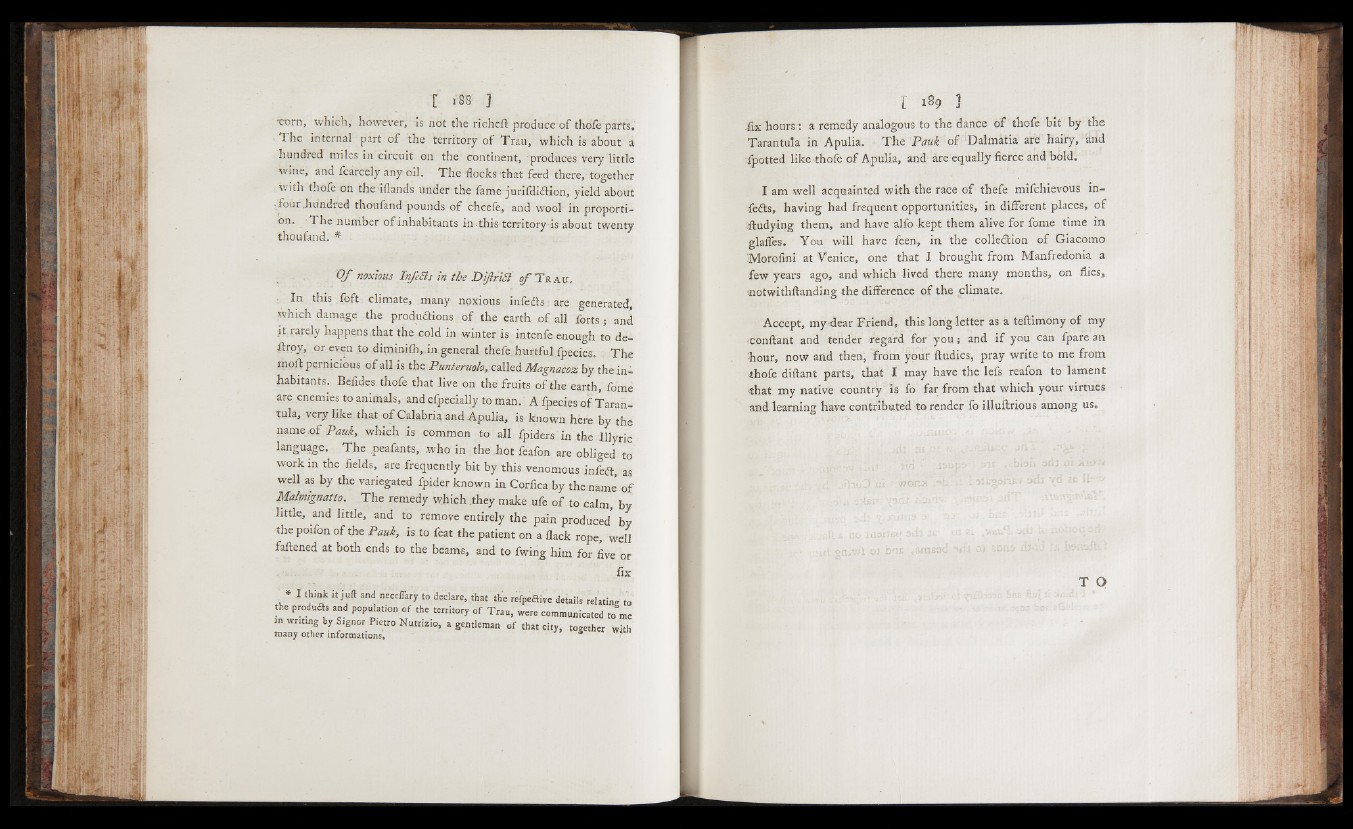
■corn, which, however, is not the rich ell produce o f thofe parts.
T he internal part o f the territory o f Trau, which is about a
hundred miles in circuit on the continent, produces very little
wine, and fcarcely any oil. The flocks ‘that feed there, together
with thofe on the-iflands under the fame jurifdidtion, yield about
vfour,hundred thoufand pounds o f cheeie, and wool in proportion.
'T h e number o f inhabitants i-n thisterritoryis about twenty
thoufand. *
O f noxious Life Sis in the DiJiriSl o f T r a u .
s In this foft climate, many noxious infedts are generated,
which damage the productions o f the earth o f a ll forts j and
it. rarely happens.that the cold in winter is intenfe enough to de-
itrpy, or even to diminiih,.in general thefe. hurtful fpecies. The
molt pernicious o f all is the Punteruolo, called Magnacoz by the inhabitants.
Befides. thofe that live on the fruits o f the earth, fome
are enemies to animals, and efpecially to man. A fpecies o f Tarantula,
very like that of Calabria and Apulia, is known here by the
name o f Pauk, which is common to all fpiders in the Illyric
language. The peafants, who in the .hot feafon are obliged to
work in the fields, are frequently bit by this venomous infedt, as
well as by the variegated fpider known in Corfica by the name’ .of
Malmignatto. The remedy which .they make ufe o f to calm, by
little, and little, and to remove entirely the pain produced by
the poifon of the Pauk, is to feat the patient on a flack rope, well
faftened at both ends to the beams, and to fwing him for five or
fix
* I think it juft and neceiTary to declare, that the refpeftive details relating to
the produas and population of the territory of Trau, were communicated to me
m writing by Signor Pietro Nutrizio, a gentleman of that city, together with
many other informations.
fis hours : a remedy analogous to the dance o f thofe bit by the
Tarantula in Apulia. The Pauk o f Dalmatia are hairy, ‘and
Spotted like .thofe o f Apulia, and :are equally fierce and bold.
I am well acquainted with the race of thefe mifchievous infedts,
having had frequent opportunities, in different places, o f
ftudying them, and have alfo kept them alive for fome time in
glades. You will have feen, in the collection of Giacomo
Morofini at Venice, one that I brought from Manfredonia a
few years ago, and which lived there many months, on flies,
siotwithftanding the difference o f the climate.
Accept, my «dear Friend, this long letter as a teftimony of my
conflant and tender regard for you ; and i f you can fpare an
hour, now and then, from your fludies, pray write to me from
thofe diftant parts, that I may have the lefs reafon to lament
that my native country is fo far from that which your virtues
and learning have contributed to render fo illuftrious among us.
T O